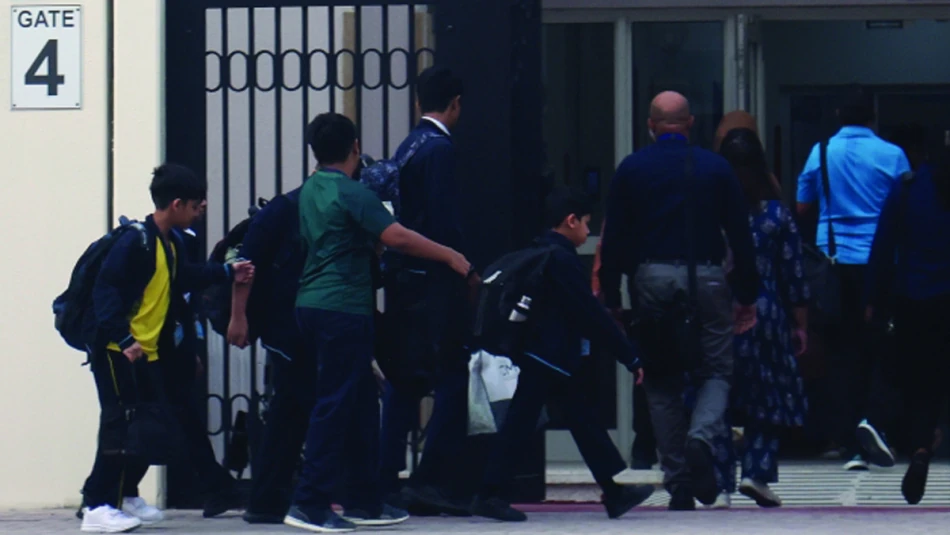
Vacation Extensions Dampens Back-to-School Excitement for Students
Empty Desks Send Dangerous Message: UAE Parents Skip First Week of School for Extended Vacations
A troubling trend is emerging in UAE schools as educators report significant numbers of empty seats during the crucial first week of classes. Parents are deliberately extending family vacations or timing trips to avoid peak airfare prices, leaving their children absent during what experts consider the most critical period for establishing academic discipline and social connections. This practice is raising serious concerns about the unintended messages families send about commitment and responsibility.
The Hidden Cost of Convenient Travel Planning
The phenomenon isn't driven by illness or emergencies, but by practical considerations that prioritize financial savings over educational continuity. Some families admitted to delaying their return by a full week specifically to avoid the surge in flight prices that coincides with the start of the academic year.
Several parents, who requested anonymity, initially justified their decision by assuming the first week was merely "orientation" with minimal academic impact. However, they quickly discovered their miscalculation when their children struggled with confusion over new schedules, unfamiliar teachers, and missed social integration opportunities.
Financial vs. Educational Priorities
Parents like Ihab Zaki, Mayada Hassan, Alia Mansour, and Marwan Ali explained that their decision stemmed from the substantial increase in airfare costs during the back-to-school period. While acknowledging the exceptional circumstances of travel expenses, they emphasized that this didn't reflect a diminished respect for academic commitment.
Educational Experts Sound the Alarm
Educators Walid Fouad Lafi, Khaled Abdel Hamid, and Faten Said delivered a stark warning about the long-term implications of first-week absences. They argue that education begins not with textbooks, but with the culture of commitment and discipline learned through seemingly small details like attending the first day of school.
"Missing the first week means losing a golden opportunity for education and discipline," they explained. The educators emphasized that this period establishes the fundamental difference between students who take responsibilities seriously and those who learn that commitments are negotiable.
The Ripple Effect on Student Development
Teachers Ribal Ghassan Al-Ata, Sarah Abdullah, and Hani Hamza identified multiple consequences of first-week absences that extend far beyond missed lessons:
Weakened self-discipline: Students learn that commitment is relative rather than absolute, establishing a problematic precedent for future responsibilities.
Reduced academic motivation: A lackluster beginning can drain enthusiasm for the entire academic year, creating a psychological barrier to engagement.
Impaired social integration: Missing crucial early bonding moments leaves students isolated from peer groups that form naturally during the opening days.
Psychological and Social Consequences
Mental health counselor Dr. Iman Mohammed emphasized that school beginnings create profound psychological impressions on children. "Returning to school isn't just an obligation—it's a psychosocial event that reinforces their sense of belonging," she explained.
When students arrive late, they experience isolation, confusion, and potentially anxiety or lost academic motivation. The impact extends beyond academic achievement to affect overall stability and self-confidence.
Family Values in Action
Family relations consultant Dr. Sharif Abdel Rahman highlighted the broader implications for family value systems. When parents prioritize leisure over education, children internalize this hierarchy and apply it throughout their lives. The message that commitments can be bypassed for convenience weakens discipline culture within the household and eventually affects university attendance, work ethic, and civic responsibility.
The Counter-Example: Committed Families
In contrast, parents Hassan Haddadi, Said Hareb, Issa Al-Radwan, Rabab Mohammed, and Munira Al-Abbasi demonstrated alternative approaches. They ensured their children returned from vacation before school started, viewing the first day as an essential message about discipline.
"We wanted our children to experience the joy of returning to school with their classmates and feel part of the collective launch," they explained. These families recognized that attendance from day one enhances enthusiasm and confidence while teaching that commitment is an indivisible value.
Long-term Implications for UAE's Educational Culture
This trend reflects broader questions about educational priorities in the UAE's rapidly developing society. As the nation positions itself as a global education hub, the casual approach to academic commitment by some families could undermine efforts to build a culture of excellence and discipline.
The contrast between families who prioritize convenience and those who emphasize commitment may create lasting divisions in student attitudes toward responsibility, potentially affecting the UAE's future workforce development and academic reputation.
Educational experts argue that addressing this trend requires coordinated efforts between schools and families to reinforce the message that academic commitment begins on day one and that the values established in elementary school shape lifelong attitudes toward responsibility and achievement.
Most Viewed News

 Sara Khaled
Sara Khaled






